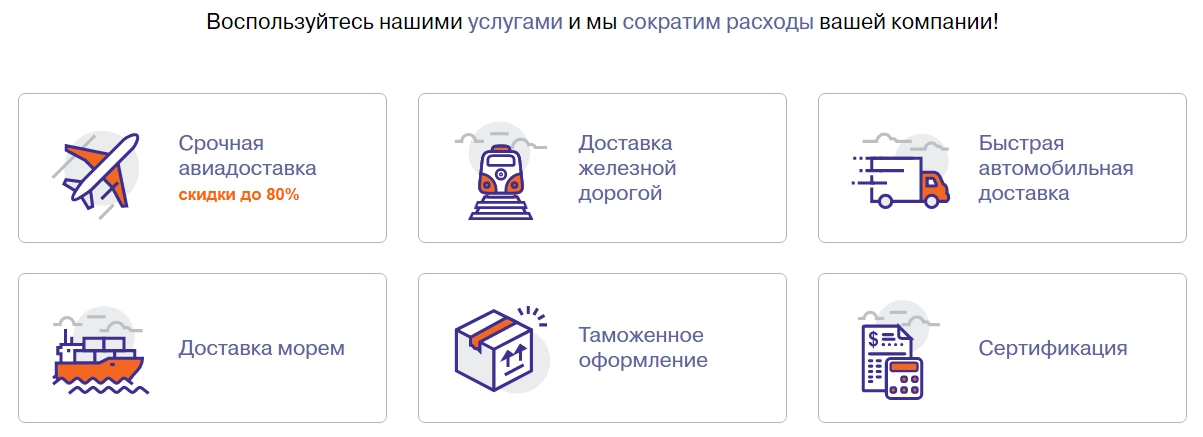How AI-driven Systems are Revolutionizing Freight Shipping
How AI-driven Systems are Revolutionizing Freight Shipping
Blog Article
The supply chain sector, particularly freight movement, is witnessing a groundbreaking evolution, fueled by the unwavering advancement of automated systems. As organizations strive for productivity and speed in delivery methods, automation stands at the forefront of this innovation, revolutionizing how merchandise are shipped across the world. From self-driving trucks to intelligent tracking technologies, the momentum of this field is palpable, offering major upgrades in efficiency, dependability, and affordability.
Redefining Efficiency with Mechanization
At the center of this digital surge lies the integration of automation in shipment logistics frameworks. Old-fashioned approaches often struggled under the weight of lagging processes and operator mistakes. However, contemporary self-operating technologies offer intelligent strategies that streamline processes.
One noteworthy advancement is in the domain of aerial transport, where automation facilitates in handling complex distribution processes that entail pathway mapping and aviation navigation control. This not only speeds up the operation but also enhances reliability by minimizing potential operator mistakes.
Enhanced monitoring capabilities are another benefit. Modern technology enables for real-time tracking of shipments, which ensures companies and clients aware about the location of their items 24/7. This clarity is invaluable in building credibility and dependability in logistics transport operations.
Cutting Expenses and Streamlining Border Clearance
Automation expands into the intricate procedures of import-export clearance, historically a hindrance for freight movement due to its complex regulations and likely delays.
Modern AI-integrated frameworks equipped with large-scale analytics tools can swiftly process massive datasets of records and ensure adherence with government policies faster than previously. This minimization in workflow delays cuts down on overhead expenses significantly, demonstrating a immediate cost-benefit that businesses can capitalize on.
Optimizing Logistics with Big Data
Additionally, the implementation of data analytics reinvents the method toward logistics and customs. By examining past records and real-time patterns, AI-powered frameworks anticipate bottlenecks and enhance workflows to be more consistent and seamless.
Enterprises tracking real-time data can make informed choices that automatically mitigate challenges associated with import-export processing lags.
Eco-Friendly Impact
Self-operating solutions also support significantly to ecological responsibility in cargo transport. More accurate and well-planned navigation optimization lowers unnecessary resource expenditure and decreases greenhouse gas.
Automated delivery trucks are progressively compatible with alternative power solutions and battery-powered energy, aligning cargo distribution activities with global sustainability initiatives.
Improving Client Satisfaction
The self-operating innovation enhances not just logistical streamlining but also client satisfaction. The ability to observe deliveries in real time, encounter reduced delays, and appreciate lowered costs enhances client experience positively.
Rapid, transparent, and efficient logistics frameworks are more likely to encourage customer retention and continuous transactions, proving that state-of-the-art technology is vital in modern-day cargo shipping frameworks.
Furthermore, as machines execute repetitive operations more efficiently, organizations can redirect employee resources to departments requiring strategic insight and decision-making, consequently improving customer quality as a whole.
Facing Ahead: The Self-Operating Future
The groundbreaking impact of self-operating technology in cargo shipping guarantees an promising era for logistics. As companies continue to leverage these solutions, they enhance their market position by delivering faster, more secure, and more economical delivery methods.
Green advancements further expand the value of automated systems, synchronizing market practices with green efforts.
A Progressive Era in Freight Transport
In principle, the adoption of AI-driven solutions in shipment transport opens up a vast array of opportunities designed for enhancing transport not only quicker but also more reliable and less costly.
The calculated leveraging of Big Data in simplifying border clearance processes further highlights the performance of self-operating frameworks in reshaping traditional logistics environments.
AI Integration: The Next Era of Freight Shipping
Freight movement is moving decisively into a progressive phase driven by self-operating systems—a reflection to humanity’s relentless pursuit of advancement.
With continuous innovations, the capability to revolutionize global trade dynamics persists, indicating an optimistic trajectory towards an integrated and streamlined future in logistics shipping.
To get more information about tamozhennoe oformlenie visit this webpage: click.